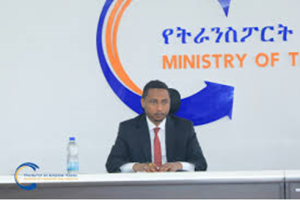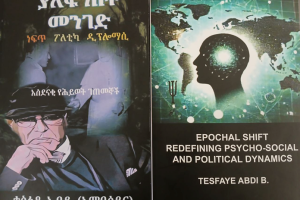
National voluntary service program is currently underway in Ethiopia and thousands of the youth are providing multiple services in the rural and urban settings of the country. Although the practices of self-help traditional mutual support services are not new to Ethiopia, modern traditional voluntarism, particularly in the urban centers of the country is a recent phenomenon.
National policy and strategy on voluntary services in this country have been issued a couple of years back but most of the volunteers and the entire public have not been oriented on its application and practical significance.
In Ethiopia, voluntary services are called upon only during the rainy season when schools and universities are closed. It looked as if the purposes of voluntary youth services are meant only to engage students when classes are not in session. Although a number of voluntary service steering committees have been established at the federal and regional levels, the scope of their activities and areas of coordination are limited to fewer service areas like adult education and provision of refresher courses for school children providing support for the elderly and those who have different types of needs.
On the other hand, good practices in voluntary services by youth groups are not adequately documented and the learning items from the annual services are not properly recorded. In short, there are important gaps and shortfalls that need to be addressed by all concerned.
Media outlets and communication companies do not prepare enough news and documentaries on free services that volunteers are providing to the public.
Voluntary services should not be considered only past time activities but also as learning opportunities in which the participants gain practical knowledge. I think the volunteers should also be provided with guidelines on which they can report on their findings, experiences and recommendations both to the federal and local governments.
When it comes to voluntary services, the professional mix of the participants would play an important role in maximizing the benefits from the services. For instance, aspirant physicians, civil engineers, architects, men and women in creative arts, teachers, students of ethnography and linguistics, candidates for degrees in environmental studies, ecology, geology, botany, journalism and a myriad of fields can obtain additives to their theoretical and practical studies. If properly managed and streamlined, voluntary services are good schools for practical education.
The policy and strategy document sets some standards and indicators for recognition and reward system for volunteers but we do not see much of it being implemented.
Civil society organizations have so far done very little in utilizing the voluntary services of the youth in this country. Some are trying to do so but not to the desired level.
Some of us think that voluntarism is confined to free services in one own country. Two years back Ethiopia mobilized some 250 medical professionals to West Africa to help support efforts in the eradication of Ebola in three West African countries. A number of Ethiopians have provided voluntary services under the auspices of UNHCR, UNDP and other agencies in the UN system oversees. Such international voluntary services provide ample opportunities for young Ethiopians to broaden their knowledge about the rest of the world.
In Africa, Ethiopia can pioneer in providing voluntary technical services to African countries in the spirit of promoting Pan-Africanism and promotion of peace, friendship and mutual cooperation among the countries.
This country is also indebted to thousands of foreign volunteers with various professions who were mobilized under the auspices of international NGOs during the 1984-85 drought situations in Ethiopia. I also recall the voluntary services that the US provided to Ethiopia through its Peace Corp Program and the American Point IV Program for Ethiopia. Ethiopian volunteers with different professions can repay back for this by participating in different global voluntary programs.
Ethiopia can also mobilize Ethiopians and citizens of Ethiopian origin to provide voluntary services in all areas of their professional excellence. Indeed, hundreds and thousands of citizens would love to contribute to the development of their country given better coordination and support.
One could recall that prominent Ethiopian engineers, hydrologists and scientists on environmental sciences are already voluntarily advocating for the legitimate rights of Ethiopia to finish the construction of GERD and use it for the electrification of Ethiopia and Africa.
I recall that Ethiopian university students have been providing compulsory university service program a year before they graduate from the universities. I do not actually see the reason why university students cannot be mobilized for teaching services in secondary schools as part of their graduation requirements and for their own practical experiences.
The diaspora division of the Ministry of Foreign Affairs can also organize multiple voluntary service programs for all Ethiopians abroad who wish to provide periodic voluntary services for their country.
The Ethiopian Herald July 21, 2020
BY SOLOMON DIBABA





